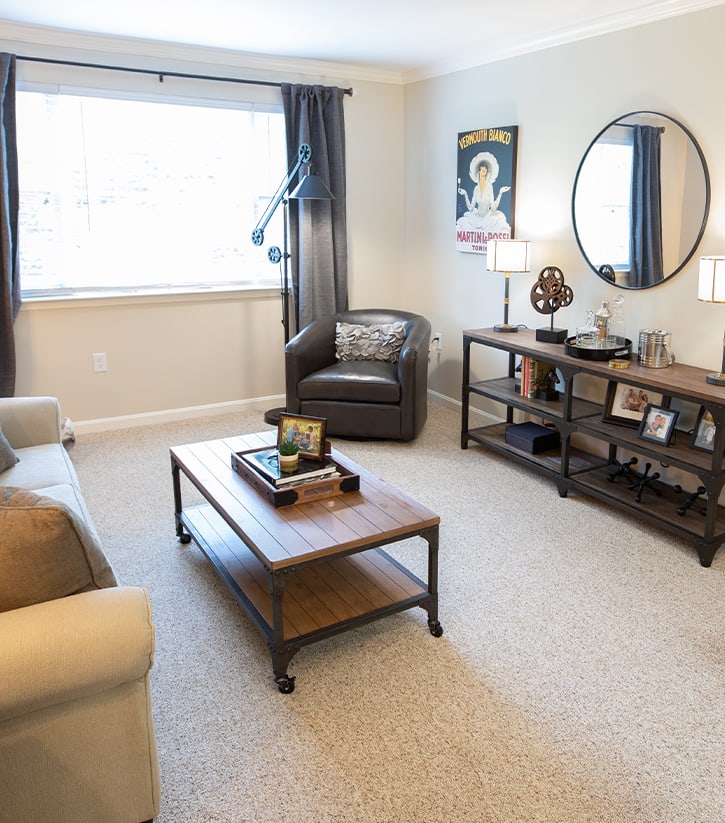Caring for a loved one with dementia can be overwhelming, but creating consistent daily routines can make a big difference. Routines provide a sense of stability and familiarity, which can help reduce anxiety and confusion for seniors with dementia. Understanding how dementia impacts daily life—and how structured routines can ease the journey—is critical for caregivers. Memory care communities play a key role by offering the structure and support seniors need to thrive.
What Is Dementia?
Dementia is an umbrella term describing a group of symptoms that affect memory, thinking, and social abilities. Alzheimer’s disease accounts for 60-80% of dementia cases, but other less well known forms include vascular dementia, Lewy body dementia, and frontotemporal dementia.
The condition progressively impacts cognitive function, making it harder for individuals to remember recent events, recognize familiar faces, or complete previously simple tasks. These changes can create confusion and anxiety, making predictable daily patterns increasingly valuable.
How Dementia Affects Routine
As dementia progresses, seniors can often experience:
- Difficulty remembering the sequence of daily activities, like getting dressed or preparing meals.
- Confusion about time and place, leading to disorientation.
- Challenges with decision-making, even for simple choices.
- Increased anxiety when faced with unexpected changes or unfamiliar situations.
These symptoms can turn everyday activities into sources of stress and frustration, which is why consistent routines become so beneficial.
Benefits of Routine for Older Adults with Dementia
Establishing a consistent routine can provide a sense of stability and comfort for older adults with dementia. By minimizing unpredictability, routines help reduce anxiety and make daily tasks more manageable.
Reduces Anxiety & Confusion
Predictable daily schedules help create a sense of security for seniors with dementia. When activities happen at the same time each day, individuals don’t need to constantly process new information or make decisions about what comes next. This familiarity can significantly reduce feelings of anxiety and confusion.
For example, having breakfast at 8 AM, followed by a morning walk at 9 AM, creates a comforting consistent pattern that becomes easier to remember and anticipate.
Prolongs Independence
Structured routines can help seniors maintain their abilities longer by reinforcing familiar activities. When tasks are broken down into consistent, manageable steps, individuals can continue participating in their care with greater confidence.
Simple routines like setting out clothes the night before or following the same steps for personal hygiene help preserve dignity and self-sufficiency as long as possible.
Improves Overall Well-Being and Quality of Life
Regular schedules that include meaningful activities, social interaction, and physical movement contribute to better emotional and physical health. Seniors who follow consistent routines often experience improved sleep patterns, better appetite, and more positive moods throughout the day.
Decreases Caregiver Stress
When seniors with dementia feel more secure and experience less confusion, family caregivers also benefit from reduced stress. Predictable routines make caregiving more manageable and help prevent some of the challenging behaviors that can arise from confusion or overstimulation.
How to Create a Successful Routine

Start with your loved one’s natural preferences and energy levels. Some people are naturally morning people, while others feel more alert in the afternoon. Build the routine around these existing patterns rather than fighting against them.
Keep activities simple and consistent. Choose the same time each day for meals, medication, personal care, and recreational activities. Use visual cues like clocks, calendars, or picture schedules to help reinforce the routine.
Build in flexibility for challenging days. While consistency is important, some days will be more difficult than others. Having backup plans for simpler activities can help maintain structure without creating additional stress.
Examples of Good Routines for Older Adults with Dementia
Morning routines might include waking at the same time, followed by personal care, breakfast, and a preferred activity like reading or listening to music.
Afternoon schedules could incorporate light exercise, social activities, or quiet time for rest, depending on individual energy levels and preferences.
Evening routines often work best when they’re calming and predictable—perhaps including dinner, a favorite television program, and consistent bedtime preparations.
The key is creating patterns that feel natural and enjoyable rather than rigid or stressful.
How Memory Care Supports Routines
At Paul Spring, part of Retirement Unlimited, Incorporated (RUI), the Inspiritás-Memory Care program is thoughtfully designed to provide seniors with dementia the care, structure, and meaningful routines they need to thrive.
- Personalized care plans: Professional care teams work closely with families to create individualized plans tailored to each resident’s unique needs and preferences.
- Specialized memory care environments: Safe and structured spaces are designed to support consistent daily routines while fostering comfort and familiarity.
- Engaging activities: Residents can participate in programs like music therapy, art classes, games, and social interactions, all designed to stimulate cognitive abilities and enhance well-being.
- Focus on dignity and fulfillment: The program ensures seniors experience meaningful connections and a sense of purpose every day.
By focusing on routine, security, and personalized care, Paul Spring helps residents maintain a quality of life filled with dignity and meaningful moments.
Creating Comfort Through Consistency
Establishing supportive routines for seniors with dementia requires patience, understanding, and often professional guidance. While the journey can be challenging, the right environment and care approach can make a significant difference in quality of life for both seniors and their families.Paul Spring’s Memory Care provides a warm, supportive environment where your loved one can continue to thrive, find joy in everyday moments, and receive compassionate care tailored to their needs. Contact us today to learn more about how our community prioritizes personalized routines for the unique needs of individuals with dementia.












